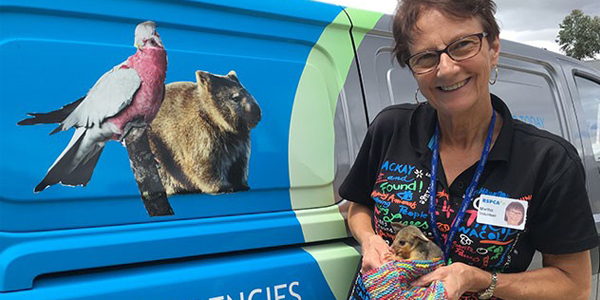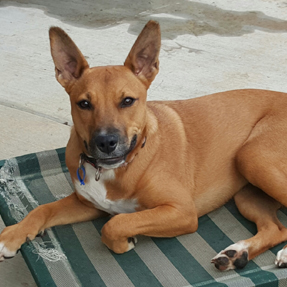Spring has marked the start of trauma season for the RSPCA with 2,190 animal rescues in August. Rescue teams are responding to animals hit by cars, orphaned and juvenile animals, animals attacked by dogs or cats, and animals found entangled.
Animal Rescue Manager Josephine Jordan says, “We really need more volunteers to drive our Rescue Units and assist in the rescue and transport of animals that need help.
“We’re doing our best to respond to all calls for help right now, but the demand will only continue to increase because of breeding season and wildlife becoming more active.”
Animal Rescue volunteers receive training, drive an RSPCA rescue vehicle and can buddy up with a friend on a shift. Various four-hour shifts are available.
Volunteer Rescue Driver Martha says, “This service is absolutely, without a doubt vital and I can’t speak of it highly enough.”
A full list of volunteer positions at RSPCA Queensland can be found here.
The RSPCA currently has Rescue Units operating in the following areas and surrounds: Gold Coast, Logan, Brisbane, Rockhampton and Townsville.
Jay the three-year-old koala was rescued on Monday. He’s one of 54 new koala patients that the RSPCA has treated in August.
Crossing Old Cleveland Rd in Carindale outside Westfield, Jay was hit by two cars. He then climbed a paperbark tree in the median strip in the middle of the road to escape.
It was a team effort in peak traffic to get Jay to safety with RSPCA Rescue Officer Chantelle, wildlife carer Angela and two QFES crews on site.
Jay is currently at the RSPCA Wildlife Hospital receiving treatment for a fractured cheek, cuts and bruises.
How to help wildlife this spring:
- If you see sick or injured wildlife call the RSPCA’s 24/7 Animal Emergency Hotline 1300 ANIMAL (13-00 264 625)
- Sign up to volunteer as an animal rescue officer with the RSPCA
- If you can, take sick or injured animals to your nearest vet, wildlife carer or RSPCA Hospital at Wacol or Eumundi
- Keep an eye out for wildlife near roads and slow down when driving. Be extra careful when driving at dusk and dawn as these are the times wildlife are most active.
- If you do hit an animal when driving, pull over where safe to do so to check the pouch of deceased wildlife. Also check under your car if you can’t see the animal as birds and small animals have been caught in car grills with the driver unaware.
- Keep your pets safe and secure on your property.
- Donate to the RSPCA’s Spring Appeal to help endangered wildlife
Tip: When conducting animal rescues, the RSPCA team will usually also remove any deceased animals they attend to, or mark them with paint so other rescuers and drivers know that pouches have been checked.










